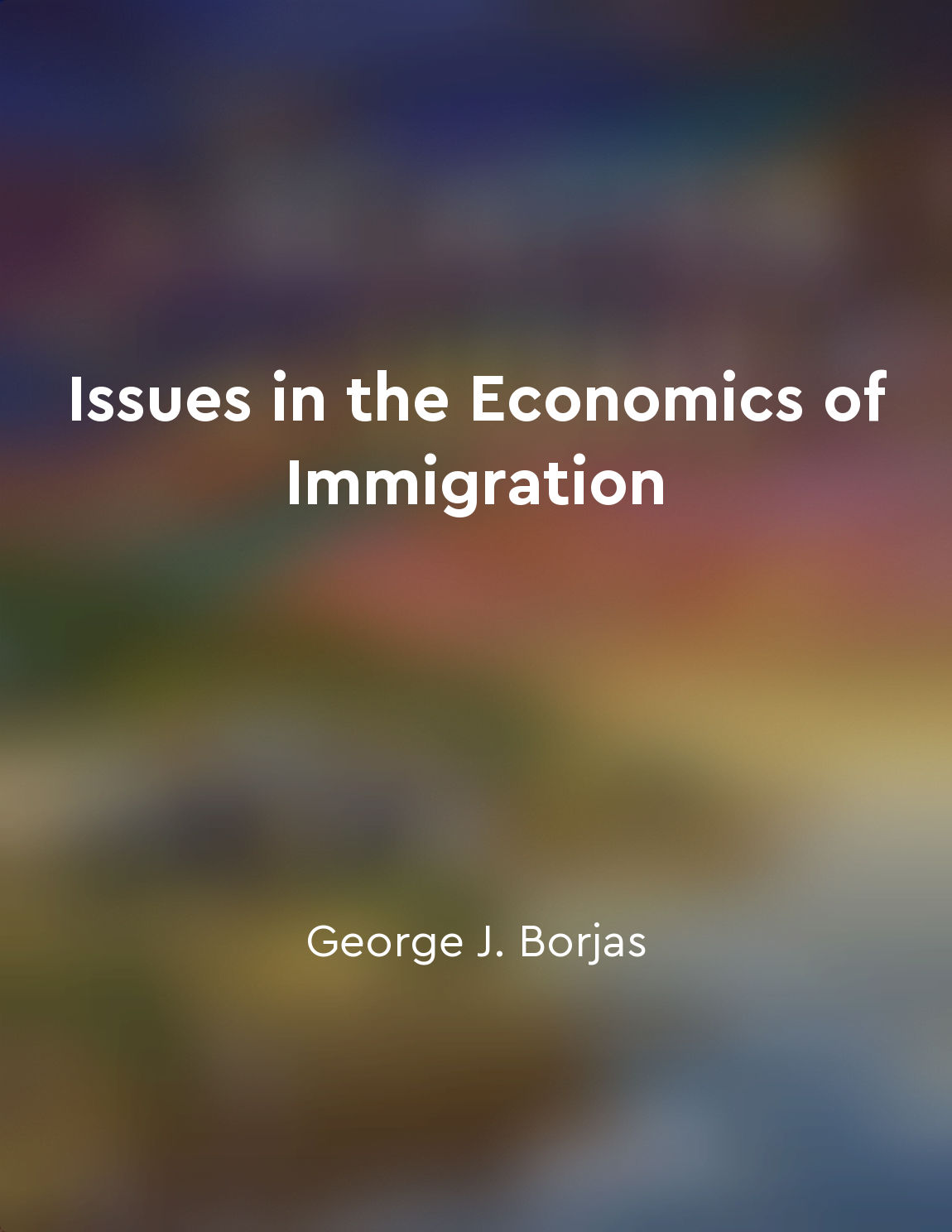The concept of a "wage effect" is hotly debated from "summary" of Issues in the Economics of Immigration by George J. Borjas
The concept of a "wage effect" is one that has sparked significant controversy and disagreement among scholars in the field of immigration economics. This idea refers to the impact that immigration has on the wages of native workers in the destination country. Some researchers argue that an influx of immigrant workers leads to a decrease in wages for native workers, as the increased supply of labor drives down the price of work. On the other hand, other scholars challenge this assertion, suggesting that the presence of immigrant labor may actually have a positive effect on native wages. They argue that immigrants often take on low-skilled jobs that native workers are unwilling to do, thereby filling gaps in the labor market and contributing to overall economic growth. In this view, immigrants may complement rather than compete with native workers, leading to higher wages for everyone. The debate surrounding the wage effect of immigration is complex and multifaceted, with researchers drawing on a variety of theoretical frameworks and empirical evidence to support their arguments. Some studies have found evidence of a negative wage effect, particularly for low-skilled native workers who face increased competition from immigrant workers. Other research, however, has highlighted the positive impact that immigrants can have on the economy, including job creation and higher productivity.- The question of whether immigration leads to lower or higher wages for native workers is far from settled. The relationship between immigration and wages is influenced by a wide range of factors, including the skill level of the immigrants, the specific characteristics of the labor market, and the policies in place to regulate immigration. As a result, the debate over the wage effect of immigration is likely to continue as researchers strive to better understand the complex dynamics at play in this important area of study.


